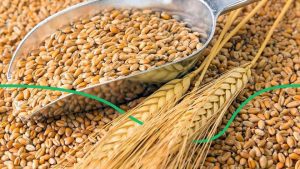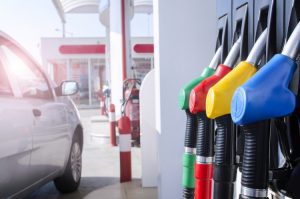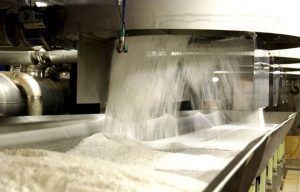
As of November 2, Ukrainian agricultural producers harvested 70.5 million tonnes of basic crops from an area of 21.8 million hectares, in particular, 53.5 million tonnes of grain and leguminous crops were harvested from an area of about 13.5 million hectares (88% of the forecast).
According to a report posted on the website of the Ministry of Economic Development, Trade and Agriculture, the following crops were collected: corn – 17.6 million tonnes from an area of 3.6 million hectares (66%), sunflower – 12.1 million tonnes from 6.1 million hectares (95%), soybeans – 2.4 million tonnes from 1.2 million hectares (88%), millet – 240,400 tonnes from 147,800 hectares (98%) and buckwheat – 100,300 tonnes from 77,700 hectares (99%).
Some 5.1 million tonnes of sugar beet were dug out from an area of 124,000 hectares (57%).

The average retail price of petrol, diesel fuel and LPG grew by 1.8-2.5% from October 26 to November 2, according to Kyiv-based A-95 Consulting Group.
The average retail price of A-92 petrol grew by 2.5%, to UAH 23.15 per liter, A-95 – by 2.3%, to UAH 24.21 per liter and A-95+ – by 1.8%, to UAH 25.67 per liter.
The retail price of diesel fuel rose by 2.8%, to UAH 23.53 per liter, and the price of LPG grew by 1.4%, to UAH 12.74 per liter.
National bank of Ukraine’s official rates as of 04/11/20

Source: National Bank of Ukraine

German investors believe that the main problem in Ukraine is not corruption, but the work of the judicial branch of power, German Ambassador to Ukraine Anka Feldhusen has said.
“What German investors really need is the same rules for everyone. What always scares our investors is bad examples when even large German companies in Ukraine are under pressure from law enforcement agencies, like the State Security Service of Ukraine (SBU). The reason for this is not clear to us. Companies just want to work quietly in Ukraine, to give jobs and make a profit. This is closely related to the judicial reform. Our investors tell me that corruption is no longer such a big problem,” the ambassador said in an exclusive interview with Interfax-Ukraine.
According to her, in order to attract German small and medium-sized businesses to Ukraine, they need to be given good examples that they can invest in Ukraine and be calm.
“When I used to work in Ukraine, there was always the issue of VAT refund, now it is not. Now the problem is the possibility that competitors go to court for completely incomprehensible reasons, and for large German companies it is still possible, because they have lawyers, money and time. Very often they win lawsuits, but it lasts a long time. The German economy is a medium and small business, and in order to attract them to Ukraine, they need to give them good examples that they can invest in Ukraine and be calm,” Feldhusen said.
At the same time, the ambassador said that a German pharmaceutical company recently bought the Biopharma plant in Bila Tserkva, Kyiv region. “This is a good example, because it did not happen in Kyiv, not in Kharkiv, not in Dnipro. This is a small city and it will be good for people,” she said.
“Another example is the Kostal company, which produces automotive electronics. They are already working in Pereyaslav-Khmelnytsky, and now they are opening a plant near Boryspil (both cities are located in Kyiv region). In this case, the question was about connecting the plant to the infrastructure. It is not at all clear why it was so difficult. They solved it with the help of the Ukrainian government. There will be a new plant and many new jobs,” the ambassador said.
Feldhusen said that German business has a desire to invest in Ukraine, only more good examples are lacking.

Sugar production in Ukraine as of November 2, 2020 amounted to 480,300 tonnes.
According to a report on the website of the National Association of Sugar Producers Ukrtsukor, as of this date, 30 sugar refineries were operating in the country, which processed 3.66 million tonnes of sugar beet.
As reported with reference to Ukrtsukor, the sugar beet processing season started in the country on September 5.
Sugar production in Ukraine in 2020 is projected at 1.2 million tonnes, which is 15% less than a year earlier. It is expected that 33 sugar refineries will operate this season – the same number as last year.
According to the State Statistics Service, in 2020, the area sown with sugar beet amounted to 218,900 hectares – at the level of last year.